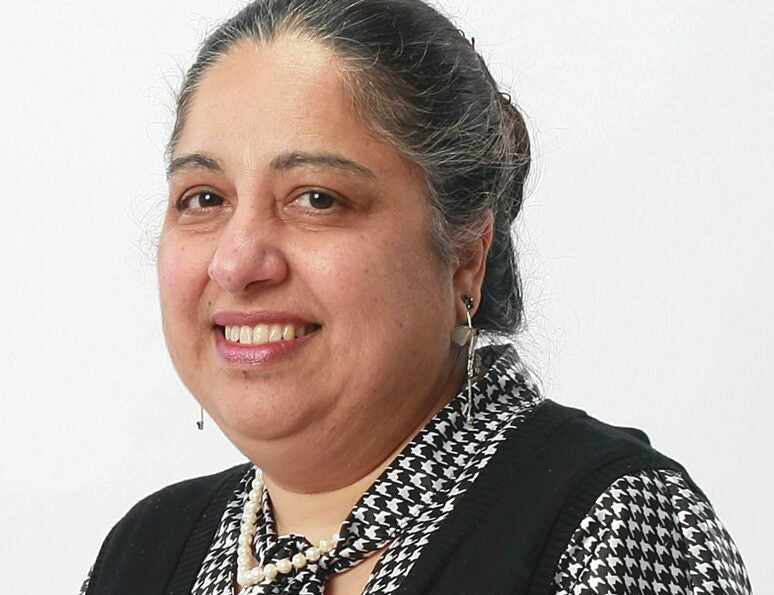Dr. Puri Receives Lung Cancer Research Grant

The University of Illinois College of Medicine Rockford recently received a $50,000 grant from the Community Foundation of Northern Illinois with support from the Dr. Louis and Violet Rubin Fund to continue
Neelu Puri, PhD
lung cancer research.
Researcher Neelu Puri, Ph.D., an associate professor in the Department of Biomedical Sciences at the College of Medicine Rockford, has been conducting a study of lung cancer screening promotion in Winnebago County as well as setting the groundwork for detection of biomarkers linked with survival of lung cancer patients and development of a new blood test to detect lung cancer in early stages. In Winnebago County, 203 deaths and 245 lung cancer cases were reported in 2014. These figures are higher than both the state and national averages.
“Recently, the Centers for Disease Control proposed new guidelines for early screening of lung cancer in individuals aged 55-80 years with a smoking history of 20 cigarettes a day for 30 years,” says Puri. “If you fall in that category, ask your doctor at your next appointment about getting this screening done.”
Dr. Puri is studying the effect of a physician and public education program on lung cancer screenings for adult smokers who fit the CDC guidelines described above. Through seminars and educational materials, Puri’s team has led efforts to educate area doctors and the public about the importance of low-dose computed tomography (LDCT) screening for early detection of lung cancer, especially in high-risk smokers. She has also incorporated into the program encouragement of high-risk smokers to ask their physicians about this screening test.
“The low survival rate of lung cancer is likely related to late clinical diagnosis, as patients with early stages of lung cancer typically don’t show symptoms,” explains Puri. “Low-dose computed tomography screening is a powerful tool to detect early-stage lung cancer and may improve patient survival. By educating physicians and the public about this screening tool, we hope to increase the number of people in Winnebago County who get screened and improve the survival rate for those who are found to have lung cancer.”
From June 2015 to October 2017, more than 1,100 such screenings took place at Rockford’s Mercyhealth, OSF St. Anthony, and SwedishAmerican health systems and lung cancer was detected in 19 patients, according to Puri. Eleven of these were early stage lung cancer cases, which may not have been detected without this screening; small nodules were identified in 488 cases that will be further evaluated. Detection of lung cancer at an early stage greatly improves patient prognosis and steeply reduces healthcare costs.
In addition to promoting LDCT screening, Puri’s research team is studying various biomarkers, including those called EGFR/c-MET and mTOR, which control tumor growth and could be targeted for therapy to improve patient prognosis. Efforts are also being made to develop a blood test for early detection of lung cancer.
“We are studying different proteins in lung cancer tumors and how they correlate with patient survival at different stages of lung cancer,” says Puri. “We have identified a specific protein called mTOR as a potential biomarker of lung cancer cases within our community. We hope this biomarker could be targeted therapeutically in the future. We are also studying the EGFR gene to develop a novel blood test for detecting lung cancer in its early stages.”
Puri came to the College of Medicine Rockford in 2008. She has a doctorate in biochemistry and has received training from the Wistar Institute at University of Pennsylvania, Boston University Medical Center, and the University of Chicago Department of Medicine. She is a member of the American Association for Cancer Research and is the author of dozens of research articles.
“Grants like this one from the Community Foundation of Northern Illinois support important research right here in the Rockford area that can improve people’s health not only here, but around the world,” says Alex Stagnaro-Green, M.D., dean of the College of Medicine Rockford. “We are incredibly thankful for their continued support, which has helped save lives in our community.”